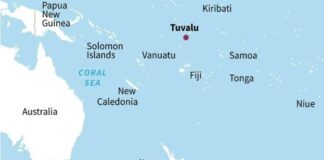The death toll from China’s earthquake has risen to 65,000, with over 23,000 people still missing. Such a powerful quake might be expected to claim many lives. But a similar earthquake in Japan in 1995 under Kobe, a city of 1.5 million, killed only a tenth of the expected Chinese toll.
A growing number of Sichuan survivors are pointing to corruption and shoddy construction in the building industry (referred to as “tofu building”) as the real killers.
The breakneck speed of China’s construction boom combined with rampaging market forces have created the optimum conditions for local party officials to pocket vast sums by cutting corners on building standards.
In the city of Dujiangyan, close to the epicentre of the quake, there was little evidence of steel reinforcement bars in the concrete rubble. Many of the worst collapses in the city were of four to six storey buildings built from un-reinforced brick and hollow concrete slabs.
Online, where there has been an outpouring of criticism of the authorities, one architect wrote that the Juyan Middle School, where 900 children died, used pre-fabricated concrete board-strictly forbidden under current building codes.
Survivors despaired at the collapse of the Juyuan High School while nearby buildings belonging to the army remained intact. One resident’s comment about local officials was: “They took our money from investment, so [too] they took the lives of hundreds of kids. They have money for prostitutes and second wives but they don’t have money for our children. This is not a natural disaster-this is one by humans”.
Now a petition is being circulated demanding punishment for officials responsible for poorly-built schools.
Victims raise protest
Close to 7000 schools were destroyed-a disproportionately large number of buildings. Schools are among mid-sized building projects handed out to contractors. They don’t produce profits or house party officials so they are vulnerable to dangerous cost-cutting.
In the small town of Wufu, where 127 school children died, parents raised a huge banner that read: “The children did not die of a natural disaster but of an unsafe building”. They marched to the regional headquarters demanding an investigation. Luo Guomin, a farmer from Dujiangyan said, “the people responsible for this should be brought here and have a bullet put in their head.”
By late May many informal gatherings of grieving parents evolved into protests demanding justice. Hundreds of parents rallied in the city of Mianzhu on May 24. The following day they attempted to march to the provincial capital Chengdu but were blocked by police.
Parents were told that they could receive $US4500 a child. One farmer said, “We don’t want their money, we just want this corruption to end.” This anger has pressured the Housing Minister to set up an inquiry into whether corruption was to blame for the large number of schools destroyed. The government has also suspended its one child policy in Chengdu, Dujingyan and Pengzhou.
Over the years the government has launched numerous anti-corruption drives, netting some high-profile party officials. But corruption remains deeply entrenched. In 2005 the National Audit Office in Beijing revealed that $US1.5 billion dollars had been misappropriated that year. Today it is estimated that 1 RMB (currency unit) in 6 is corrupt. Corruption has a stranglehold over the most basic transactions-buying a train ticket, building a house, getting a job transfer.
The scale of the tragedy and rescue response by the Chinese authorities has muted criticism and diverted international attention away from China’s crackdown in Tibet and the possibility of protests at the opening of the Olympics.
However the quake has exposed the Chinese government to a far more potent threat-growing domestic discontent. Capitalist growth in China enriches the few and places millions in the path of ecological catastrophe. Following the Sichuan tragedy there is a sense that more people are rejecting Beijing’s mantra of growth at any cost.
By Tim Erikson





